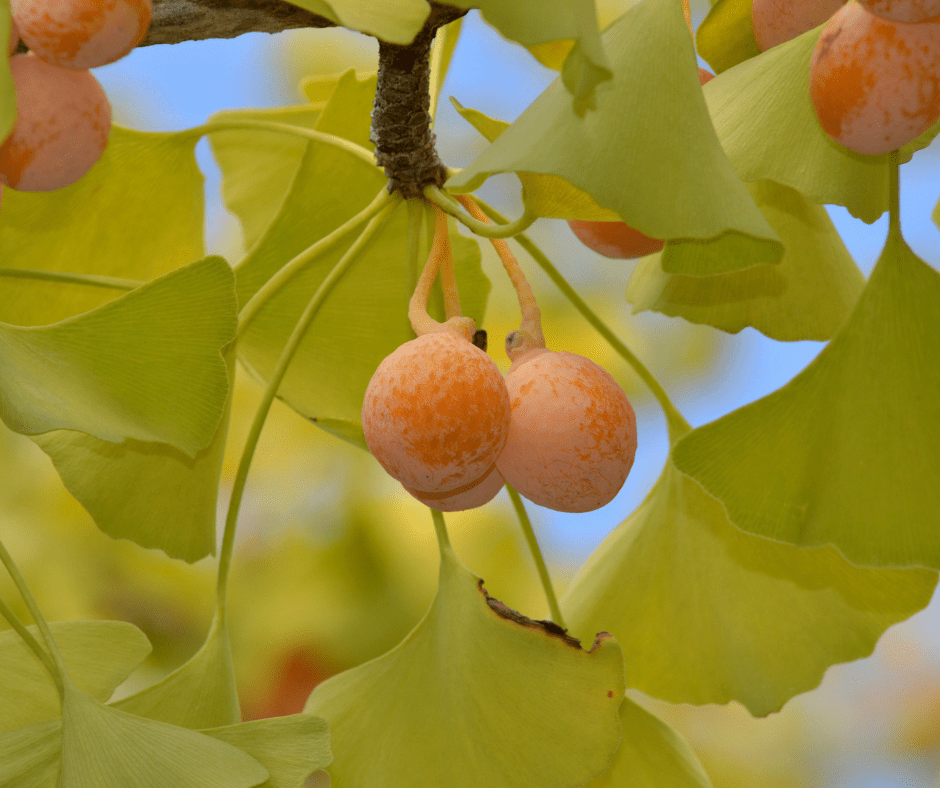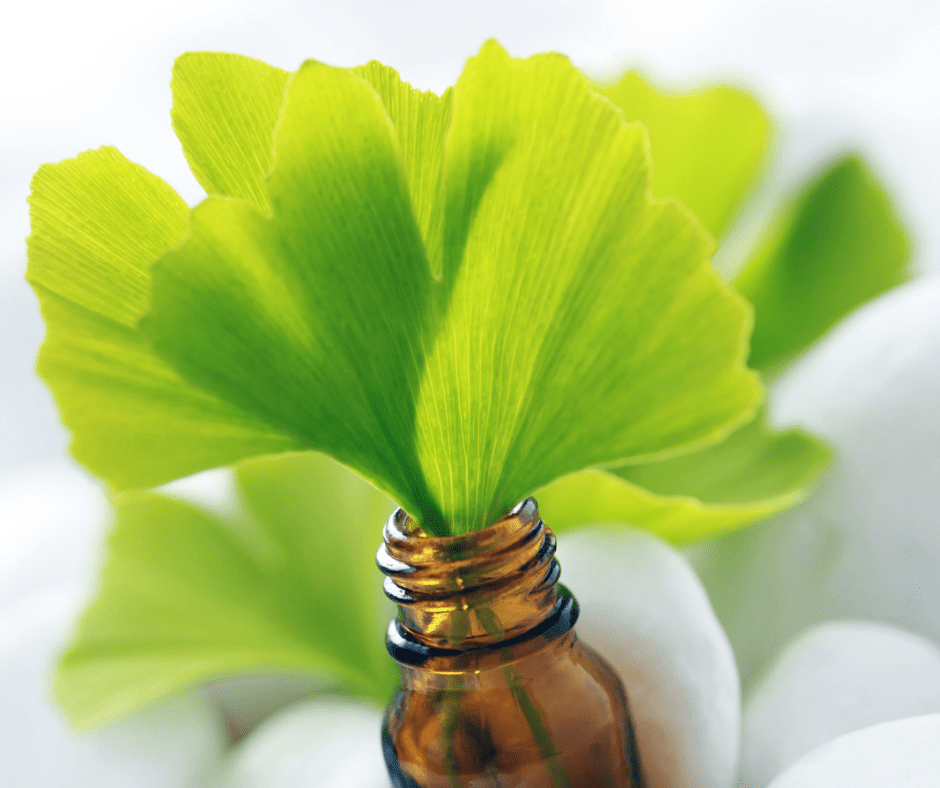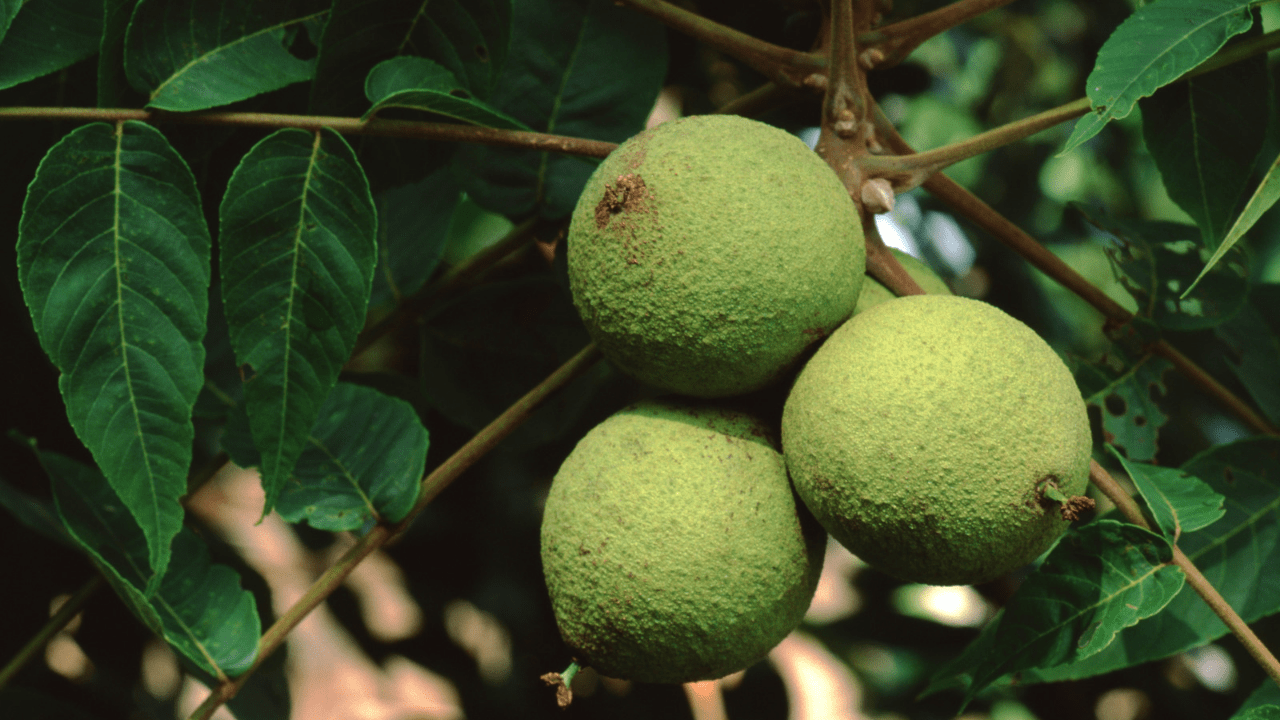The ginkgo tree (Ginkgo biloba), is one of the oldest living tree species on Earth. It has a fascinating history that dates back millions of years.
Originating in China millions of years ago, the ginkgo tree has survived many major extinction events and geological changes. Fossils of ginkgo leaves have been found from around 270 million years ago, during the Permian period. This makes it a living fossil, as it has remained relatively unchanged for millions of years.
Ginkgo trees have played an important role in human history as well. In ancient China, ginkgo was considered a sacred tree and was planted near temples and palaces. Its fan-shaped leaves were admired for their beauty and symmetry. Ginkgo leaves were also used in traditional Chinese medicine for centuries to treat various ailments, including memory improvement and respiratory issues.

During the 18th and 19th centuries, ginkgo trees were introduced to Europe and North America. They quickly became popular as ornamental trees due to their unique appearance and resilience to pollution.
Yes, the ginkgo tree possesses certain characteristics that make it relatively resistant to pollution.
Here’s why!
1. Leaf structure: Ginkgo leaves have a unique fan-like shape and are coated with a waxy cuticle. This wax layer helps to minimize the absorption of pollutants from the surrounding air.
2. Deciduous nature: Ginkgo trees shed their leaves in autumn, which helps to remove any accumulated pollutants or toxins that may have been absorbed during the growing season.
3. Tolerance to pollutants: Ginkgo trees have demonstrated the ability to tolerate and even absorb various pollutants, including heavy metals such as cadmium, lead, and copper. They can accumulate these pollutants within their tissues without suffering significant damage.
4. Chemical defenses: Ginkgo trees produce compounds called flavonoids, which have antioxidant properties. These compounds help protect the tree from oxidative stress caused by pollution and other environmental factors.
5. Resilience: Ginkgo trees have a robust and hardy nature, allowing them to adapt to various environmental conditions. This resilience helps them withstand pollution and continue to thrive in urban areas.
It’s important to note however that while ginkgo trees have a higher tolerance to pollution, they are not entirely immune. Prolonged exposure to severe pollution can still have negative impacts on their health and growth.

Ginkgo Fruit
The fruit or apricot-like structures produced by female ginkgo trees are technically not fruits, but are seeds that have a shell consisting of a soft and fleshy section (the sarcotesta), and a hard section (the sclerotesta). This fruit flesh contains butyric acid which is also found in animal fats and rancid butter. This accounts for the known horrid smell.
Ginkgo trees do not begin fruiting until they have reached 20-30 years of age. In an attempt to alleviate the smelly fruit issue, most nurseries will only sell male gingko trees. This makes the fruit less problematic.
If you can get past the pungent smell, ginkgo fruits are edible and in fact, the seed inside the fruit has long been revered throughout Chinese medicine as an aphrodisiac.
It is important to note that gingko “nuts” cannot be eaten raw as they are mildly toxic. Boil, bake, roast, or fry them before consumption.

Medicinal Benefits
Contains powerful antioxidants: Ginkgo’s antioxidant content may be the reason behind many of its health claims.
Ginkgo contains high levels of flavonoids and terpenoids, which are compounds known for their strong antioxidant effects. Antioxidants neutralize the damaging effects of free radicals. Free radicals are highly reactive particles that are produced in the body during normal metabolic functions, such as converting food to energy or detoxification. Yet, they also have the potential to damage healthy tissues, contributing to accelerated aging and disease development. Research on ginkgo’s antioxidant effects is promising.
May Improve Circulation and Heart Health: In traditional Chinese medicine, ginkgo seeds were used to open channels of energy to different organ systems, including the kidneys, liver, brain, and lungs.
Ginkgo’s apparent ability to increase blood flow to various parts of the body may be the origin of many of its supposed benefits. One study in people with heart disease who supplemented with ginkgo revealed an immediate increase in blood flow to multiple parts of the body. This was attributed to a 12% increase in levels of circulating nitric oxide, a compound responsible for dilating blood vessels.
Similarly, another 2008 study showed the same effect in older adults who were treated with ginkgo extract. Additional research also points to ginkgo’s protective effects on heart health, brain health, and stroke prevention. There are multiple potential explanations for this, one of which may be the anti-inflammatory compounds present in the plant.
May Help Reduce Inflammation: Inflammation is part of the body’s natural response to injury or invasion by a foreign substance. In the inflammatory response, various components of the immune system are recruited to fight against the foreign invader or heal the injured area. Some chronic diseases trigger an inflammatory response even when there is no illness or injury present. Over time, this excessive inflammation can cause permanent damage to the body’s tissues and DNA.
Years of animal and test-tube research shows that ginkgo extract can reduce markers of inflammation in both human and animal cells in a variety of disease states. Some specific conditions in which ginkgo extract has shown to reduce inflammation include:
• Arthritis
• Inflammatory bowel disease (IBD)
• Cancer
• Heart disease
• Stroke

May Reduces Symptoms Of Psychiatric Disorders And Dementia: Ginkgo has been repeatedly evaluated for its ability to reduce anxiety, stress, and other symptoms associated with Alzheimer’s disease and cognitive decline linked to aging.
Some studies show a marked reduction in the rate of cognitive decline in people with dementia using ginkgo, but others fail to replicate this result.
A review of 21 studies revealed that when used in conjunction with conventional medicine, ginkgo extract may increase functional capabilities in those with mild Alzheimer’s. Another review evaluated four studies and found a significant reduction in a spectrum of symptoms associated with dementia when ginkgo was used for 22-24 weeks.
These positive results could be related to the role that ginkgo may play in improving blood flow to the brain, especially as it relates to vascular types of dementia.
May Improve Brain Function And Well-Being: A handful of small studies support the notion that supplementing with ginkgo may increase mental performance and perceived well-being. Results from studies like these have given rise to claims linking ginkgo to improved memory, focus, and attention span.
May Reduce Anxiety: Some research indicates that supplementing with ginkgo may reduce symptoms of anxiety. A handful of animal studies have observed reductions in anxiety symptoms that may be attributed to the antioxidant content of ginkgo. In one 2007 study, 170 people with generalized anxiety were treated with either 240 milligrams (mg) of ginkgo, 480 mg of ginkgo, or a placebo. The group treated with the highest dose of ginkgo reported a 45% greater reduction in symptoms of anxiety, compared to the placebo group.
May Help Depression: One human study in 136 older adults also found that ginkgo biloba extract could improve symptoms of depression and reduce levels of S100B, a marker of brain injury, when paired with an antidepressant. Another study showed that older adults with post-stroke depression who took ginkgo biloba extract alongside an antidepressant for 8 weeks experienced significant reductions in symptoms of depression compared to taking an antidepressant alone. Nonetheless, depression is a complex condition that may have a variety of root causes.
May Support Vision And Eye Health: One study showed that people with glaucoma who supplemented with ginkgo experienced increased blood flow to the eye. Another 2013 review of two studies evaluated the effect of ginkgo extract on the progression of age-related macular degeneration. Some participants reported an improvement in vision. Many of these positive results seem to be related to increased blood flow to the eye.
Mat Treat Headaches And Migraines: In traditional Chinese medicine, ginkgo is a very popular treatment for headaches and migraines. Very little research is available on ginkgo’s ability to treat headaches, however, depending on the root cause of the headache, it may help. For example, it’s well known that ginkgo has anti-inflammatory and antioxidant effects. If a headache or migraine is caused by excessive stress, ginkgo may be useful.
Additionally, if a headache is related to reduced blood flow or constricted blood vessels, ginkgo’s ability to dilate blood vessels may improve symptoms.

May Improve Asthma And COPD Symptoms: Some research indicates that ginkgo may improve symptoms of asthma and other inflammatory respiratory diseases like COPD. This is attributed to the anti-inflammatory compounds in ginkgo, which may allow for reduced inflammation of the airways and increased lung capacity. One older study in 75 people evaluated the use of ginkgo extract alongside glucocorticosteroid medication therapy for managing asthma symptoms.
The levels of inflammatory compounds in the saliva of those who received ginkgo were significantly lower than those who received traditional medications. Another 2013 study in 100 people evaluated the use of a mixture of Chinese herbs, which included ginkgo, for treating COPD symptoms. Those who used the herbal formula reported a considerable reduction in cough and bronchitis at a 3-month follow-up, compared to the control group.
May Reduce PMS Symptoms: Preliminary research indicates that ginkgo may help treat both the physical and psychological symptoms of premenstrual syndrome (PMS). One older study in 85 college students revealed a 23% reduction in reported PMS symptoms when consuming ginkgo. Interestingly, the placebo group in this study also experienced a slight reduction in PMS symptoms, though it was much lower, at around 8.8%. Further research is needed to better understand the cause and effect relationship between ginkgo and PMS symptoms.
May Treat Sexual Dysfunction: Some sources indicate that ginkgo may treat issues related to sexual dysfunction, such as erectile dysfunction or low libido. Ginkgo has the ability to improve blood levels of nitric oxide, which improves circulation via the dilation of blood vessels. As a result, ginkgo may also be useful for treating various symptoms of sexual dysfunction by improving blood flow to those areas of the body.
Some research has suggested using ginkgo to treat sexual dysfunction caused by the use of antidepressant drugs (SSRIs).

How to use
It is the leaves of the ginkgo tree that are used for medicinal purposes. They can be dried and stored in a dark cabinet for future use.
One of the oldest and most basic of all remedies you can make is an herbal tea.
Ginkgo Tea: add 1-2 teaspoons of dried ginko leaves to a cup. Add boiling water and allow to steep 10 minutes. Afterwards strain out the leaves and enjoy! Add honey if desired.
Tincture: Tinctures are liquid extractions where the medicinal properties of plants are pulled or extracted into alcohol. These preparations are the preferred choice of herbalist for their efficiency and effectiveness. Making a ginkgo tincture is quite easy and can easily be made at home.
If you have never made a tincture, you can follow our step-by-step guide here on the process. This will walk you through the process, dosages, etc.
Safety Considerations
It’s important to talk to a doctor before including ginkgo in your routine. Ginkgo should not be used during pregnancy. For most adults, the risk associated with taking ginkgo is relatively low, but there are cases in which ginkgo could cause serious harm. If you are allergic to plants that contain alkylphenols or taking certain medications, you should not take ginkgo. Possible side effects include: nausea, diarrhea, dizziness, headaches, stomach pain, rash/allergic reaction.
Ginkgo has the potential to interact unfavorably with certain medications. Some interactions could increase the risk of bleeding. Possible adverse medication interactions include:
• Blood thinners (Warfarin, aspirin)
• SSRIs/MAOIs/antidepressants (Prozac, Zoloft)
• NSAIDS (ibuprofen, naproxon)

This amazing tree continues to fascinate scientist and herbalist alike. It’s resilience is unmatched by any in the plant kingdom.
As a medicine, ginkgo has been used since humans have existed and it’s amazing benefits are still revered today. As always, do your own research to decide if ginkgo is right for you.
Stay Wild
SOURCES
https://www.ncbi.nlm.nih.gov/pmc/articles/PMC4557237/
https://www.ncbi.nlm.nih.gov/pmc/articles/PMC9855530/
https://www.healthline.com/nutrition/ginkgo-biloba-benefits

Kayce Heister
Kayce is a Clinical Herbalist, Naturopathic Practitioner (HHP), Active Forager, Wild Food Chef and Mother of three. She has spent the last 20 years practicing herbalism and natural health, and spends most of her time educating others on the amazing potential the natural world can offer.

